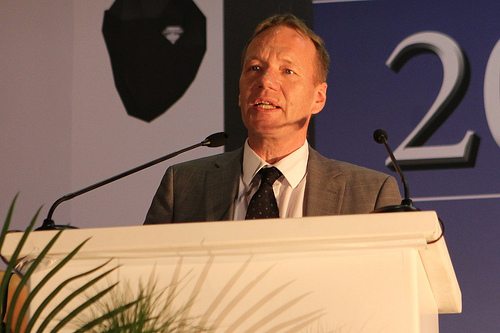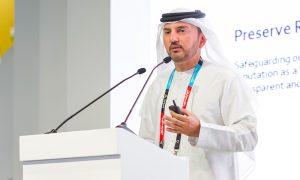Exclusive: “There is commercial uncertainty associated with green talk”
Big Project ME speaks to Jens Nielsen, partner at World Climate Ltd about the commercial viability of sustainability targets


“Growth itself comes before green growth” – Jens Nielsen, partner, World Climate Ltd | Image Courtesy: flickr.com/wclimate
RELATED ARTICLES: New EmiratesGBC chairman wants sustainability for all | Dubai set to host first-ever green economy summit| Dubai Expo 2020 to be ‘greenest’ in event history
Jens Nielsen, partner at World Climate Ltd, the international green stakeholder platform which co-organised the recently-concluded World Green Economy Summit (WGES) 2014, speaks to Big Project ME about the commercial viability of sustainability targets, and how PPPs can boost the case for global green economies.
What was the objective behind organising WGES 2014?
We’re launching the PPP platform and trying to make the World Green Economy Summit not just a talk, but also a place where you deal with big sustainable projects. For a greener world to happen, we simply need to work together as partners. Change today will not happen unless you involve the nation states that make the regulation; the regions, cities and utilities that implement and run our infrastructure and facilities; the private sector that provides the technology and the know-how for new projects and innovation; the finance sector that has the funding to scale initiatives so they become impactful; and the consumer and the citizen whom we all in the end are accountable to.
Can governments successfully drive sustainability targets?
The problem with top-down is best explained in economic terms; you talk about externalities, such as pollution and CO2 emissions – these are externalities. The problem is that there’s never been a price on it, and it’s very difficult, then, to levy a tax on carbon emissions and to solve these externalities in a way that matches traditional pricing methods. It is difficult to sustain these systems and it’s getting harder and harder for them to attract confidence.
You want growth, but not all growth is green. It’s very hard to take some of the fast-expanding countries in the world, like China, Indonesia or South Africa and tell them to, say, build green – with populations who don’t even have access to housing, green housing becomes an illogical demand placed on them. Growth by itself comes before green growth, so to pursue it in a top-down governmental way is quite challenging.
Is it commercially-viable for the private sector to drive sustainability in the market?
Big companies have the appeal to take the lead, besides just through regulating their supply chains, in terms of financing green projects. There’s a lot of inertia in the market because it’s been outside our normal way of looking at things; that is why, big companies have to show and lead the way.
Generally, short-sightedness and competition make it difficult to separate profiteering from business operations, but there needs to be a stronger push towards foresightedness, as the UN has been advocating. It’s definitely possible – and why shouldn’t it be? If you look at Unilever, their practices have a clear long-term sustainability strategy underlining them.
What are the challenges associated with the creation and sustenance of green economies?
There is a commercial uncertainty associated with green talk, especially when people say green growth is good growth. It requires further investments to make e.g. wind and solar fully profitable. Construction is (usually) conservative, so it may take longer in some markets, but generally, governments will support the green movement in a way that doesn’t diminish the growth potential.
Rather than a ‘do-not’ approach, we need a positive one that promotes innovation and self-improvisation – there needs to be a bigger acceptance of what the starting point for each entity looking to go green is.



















